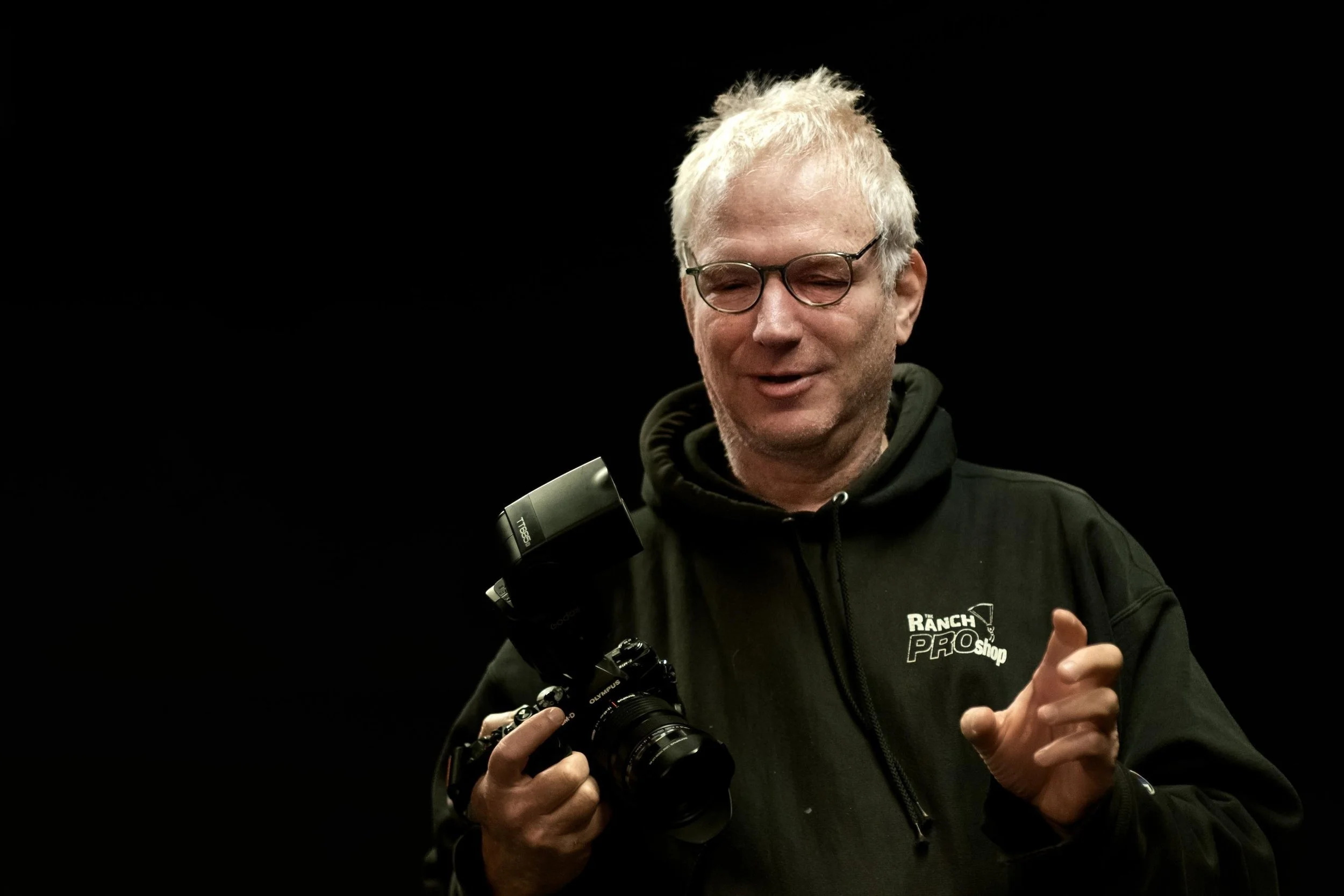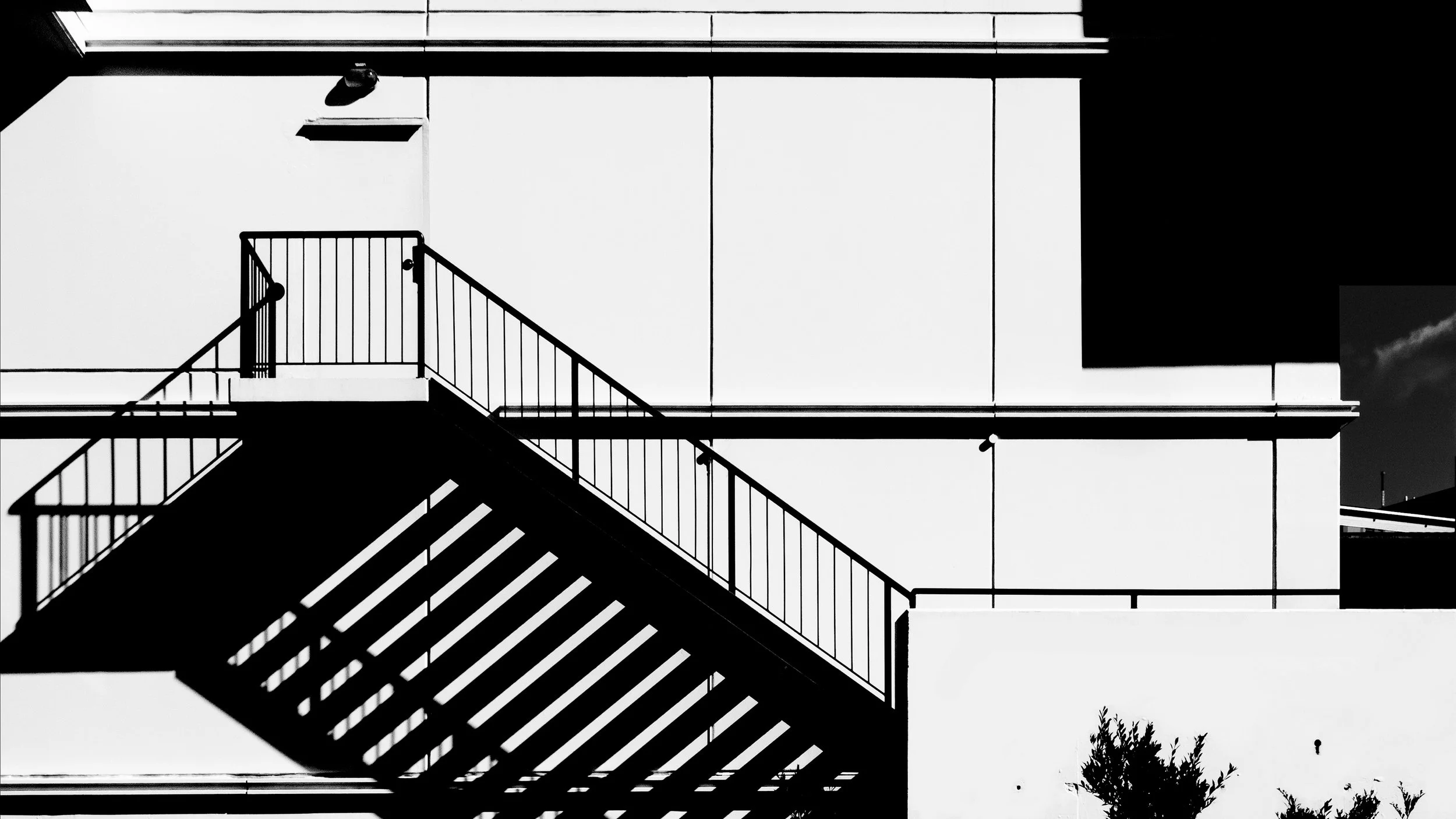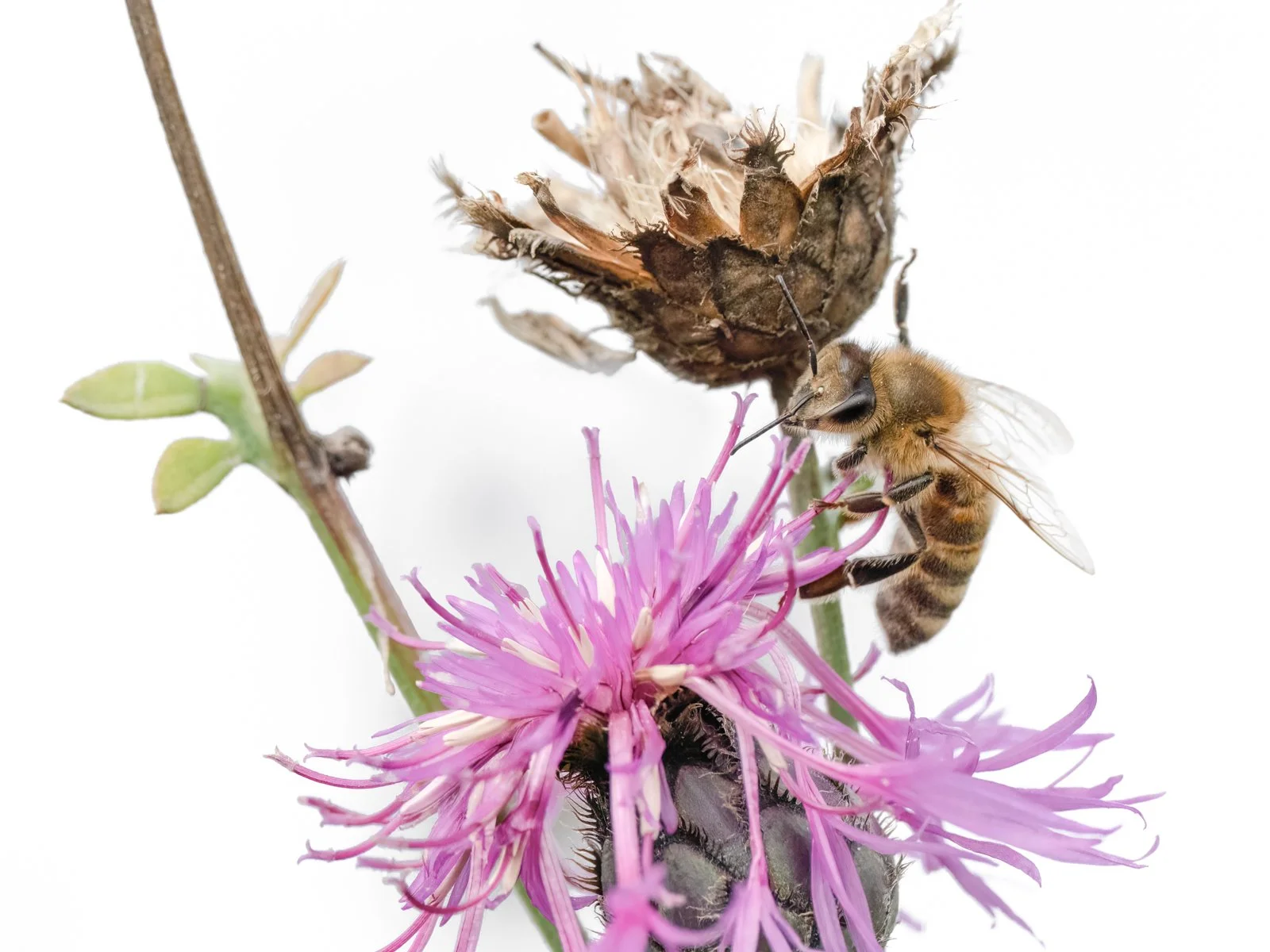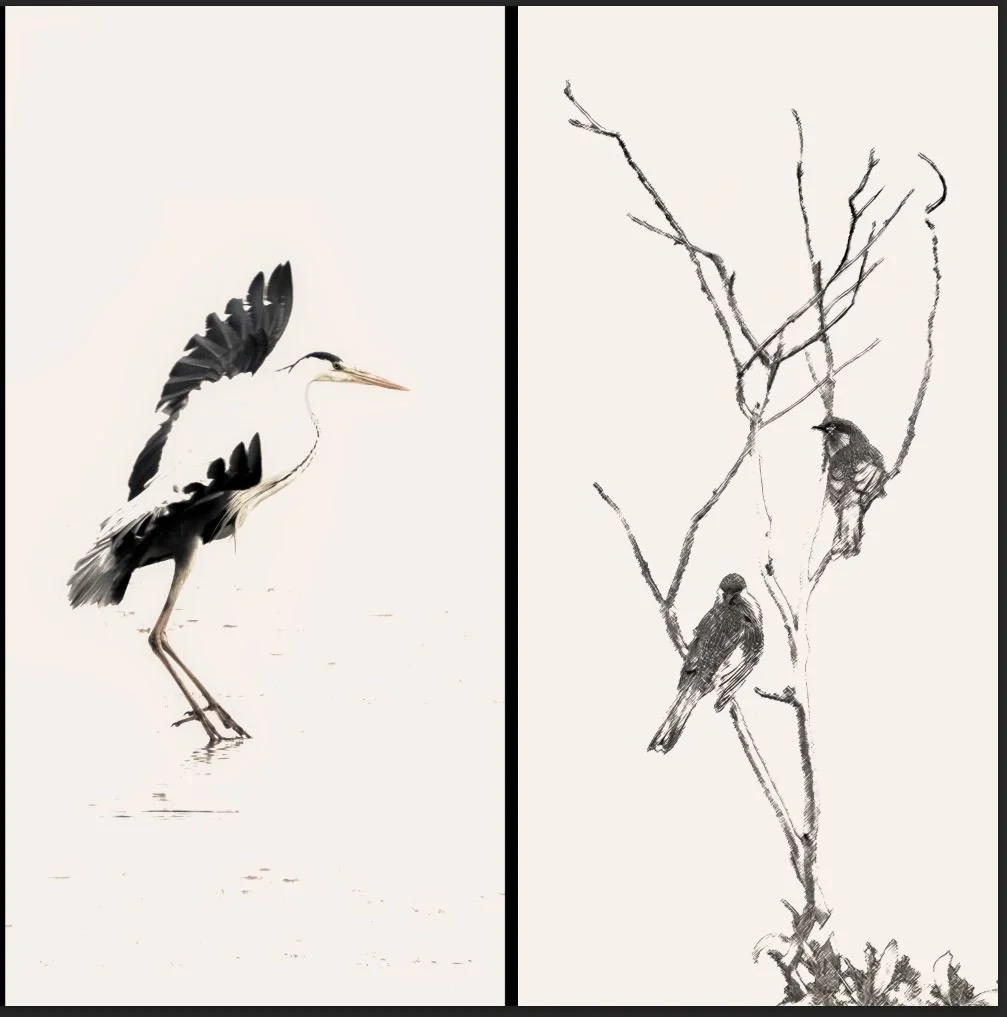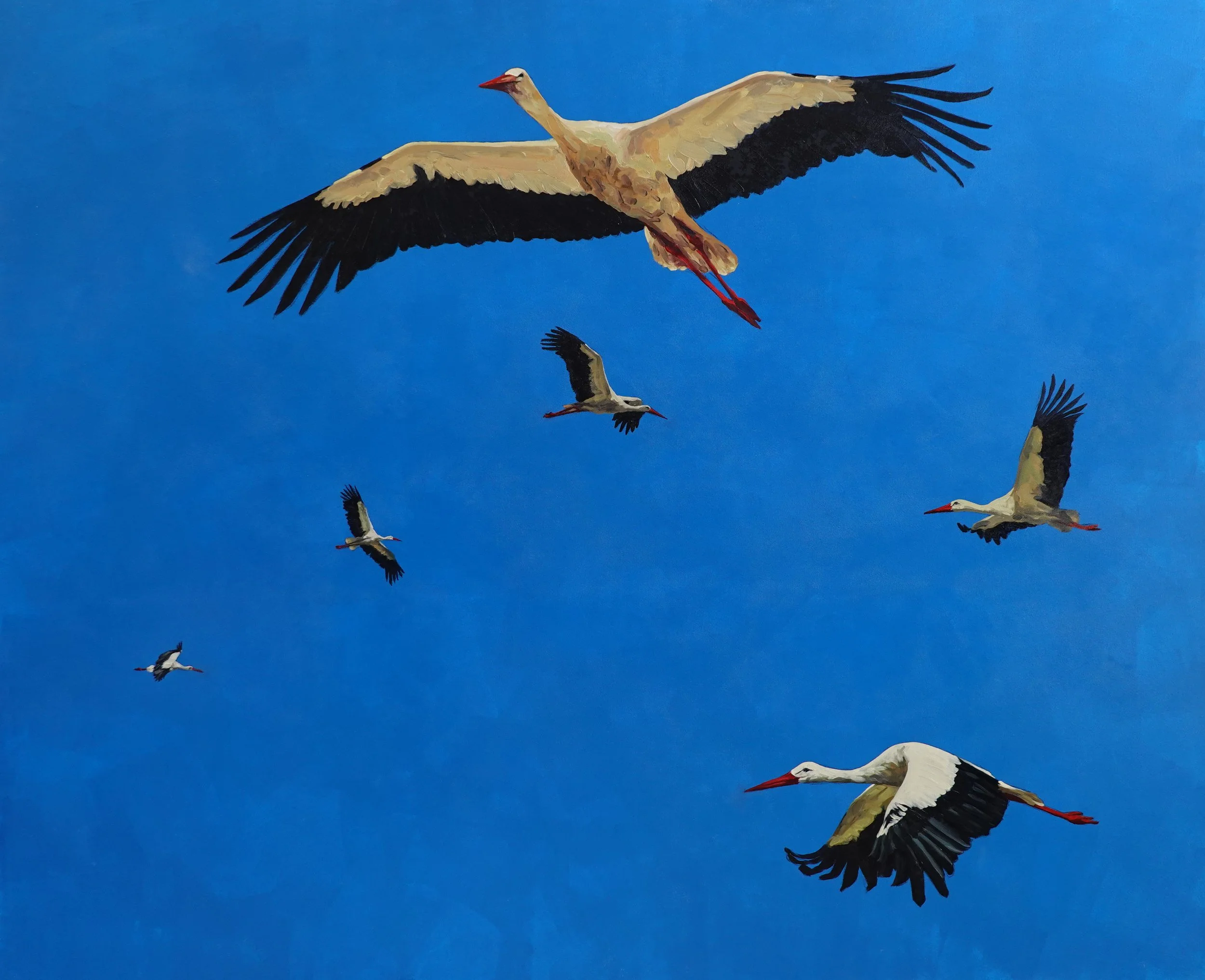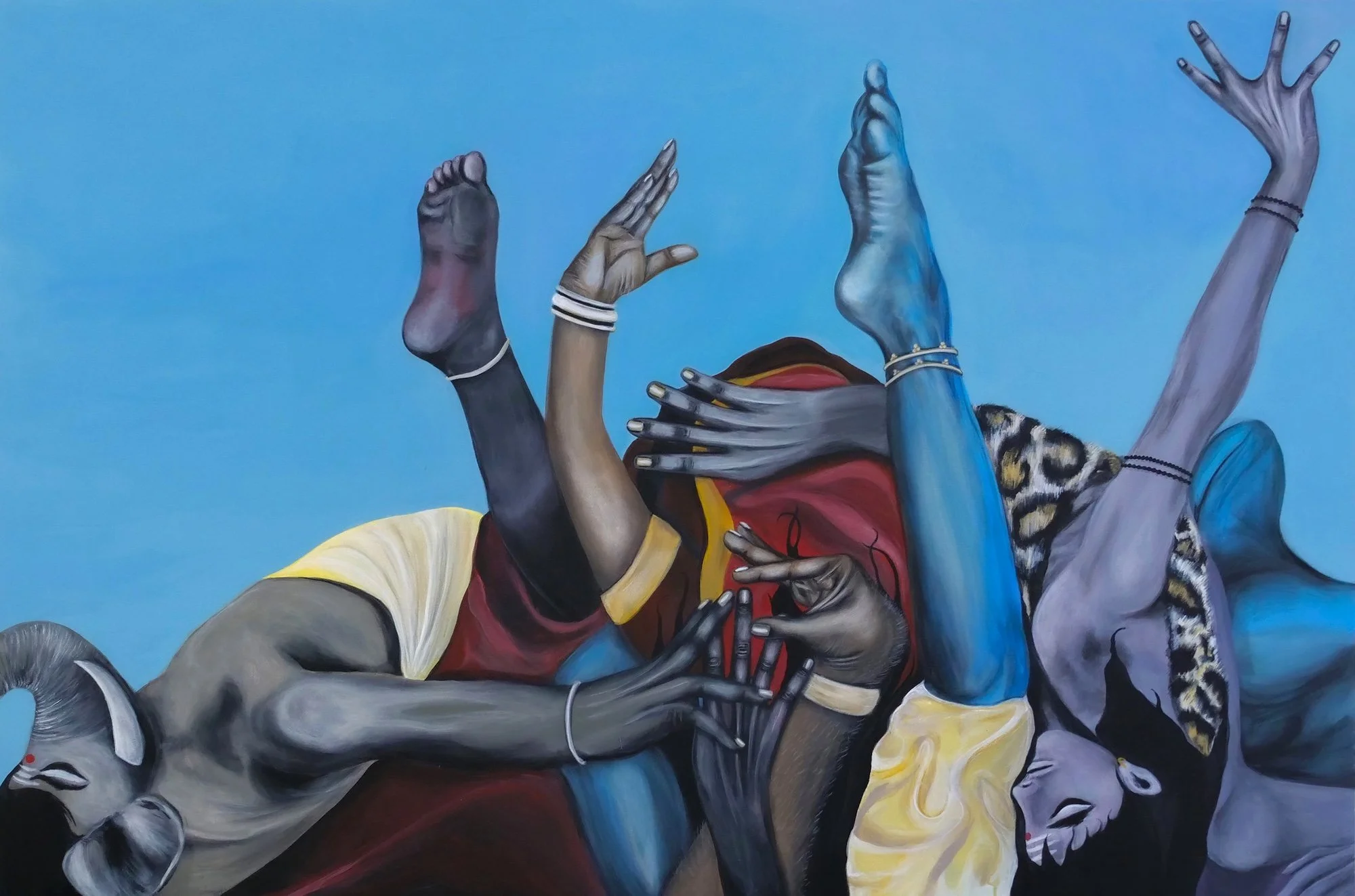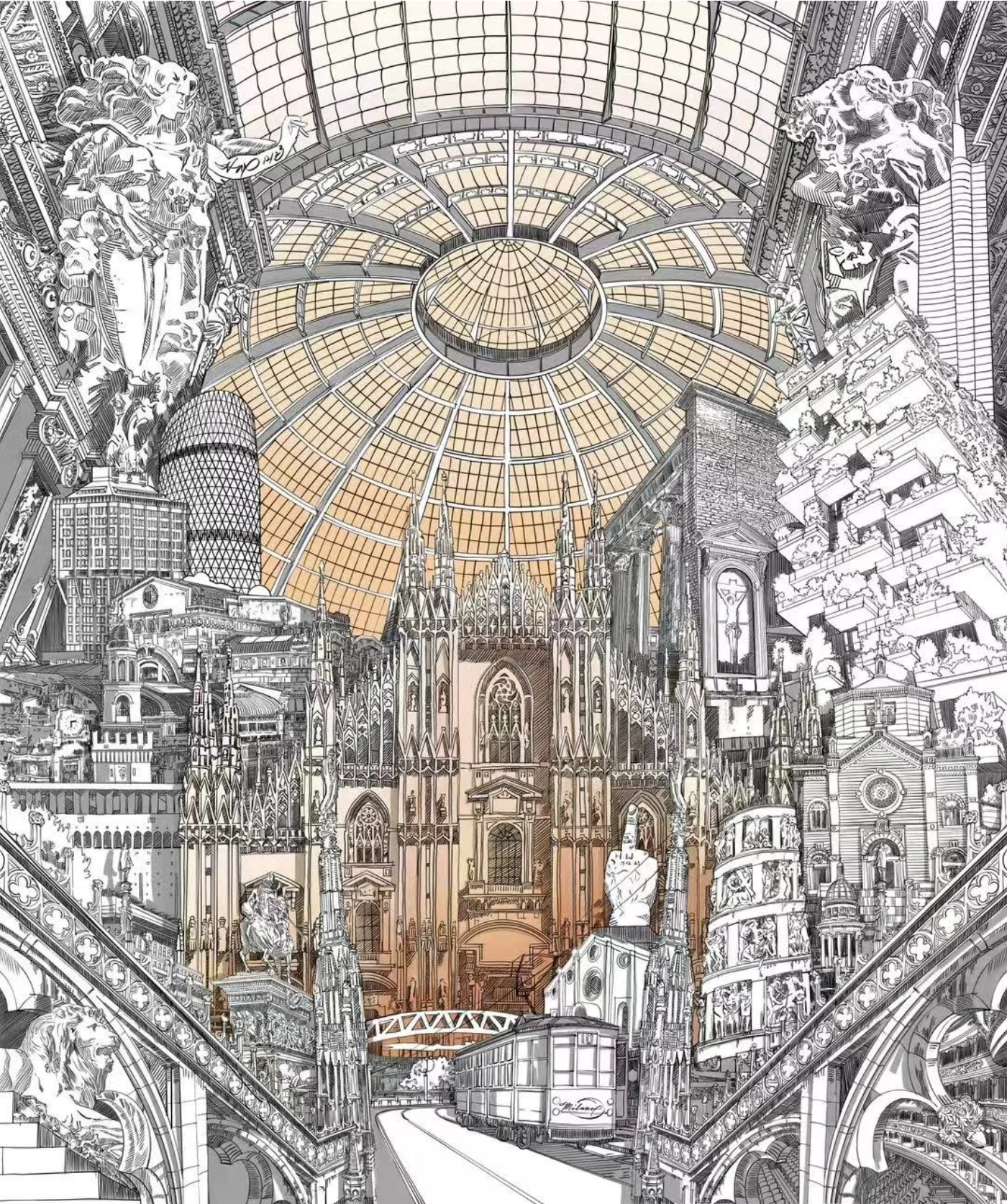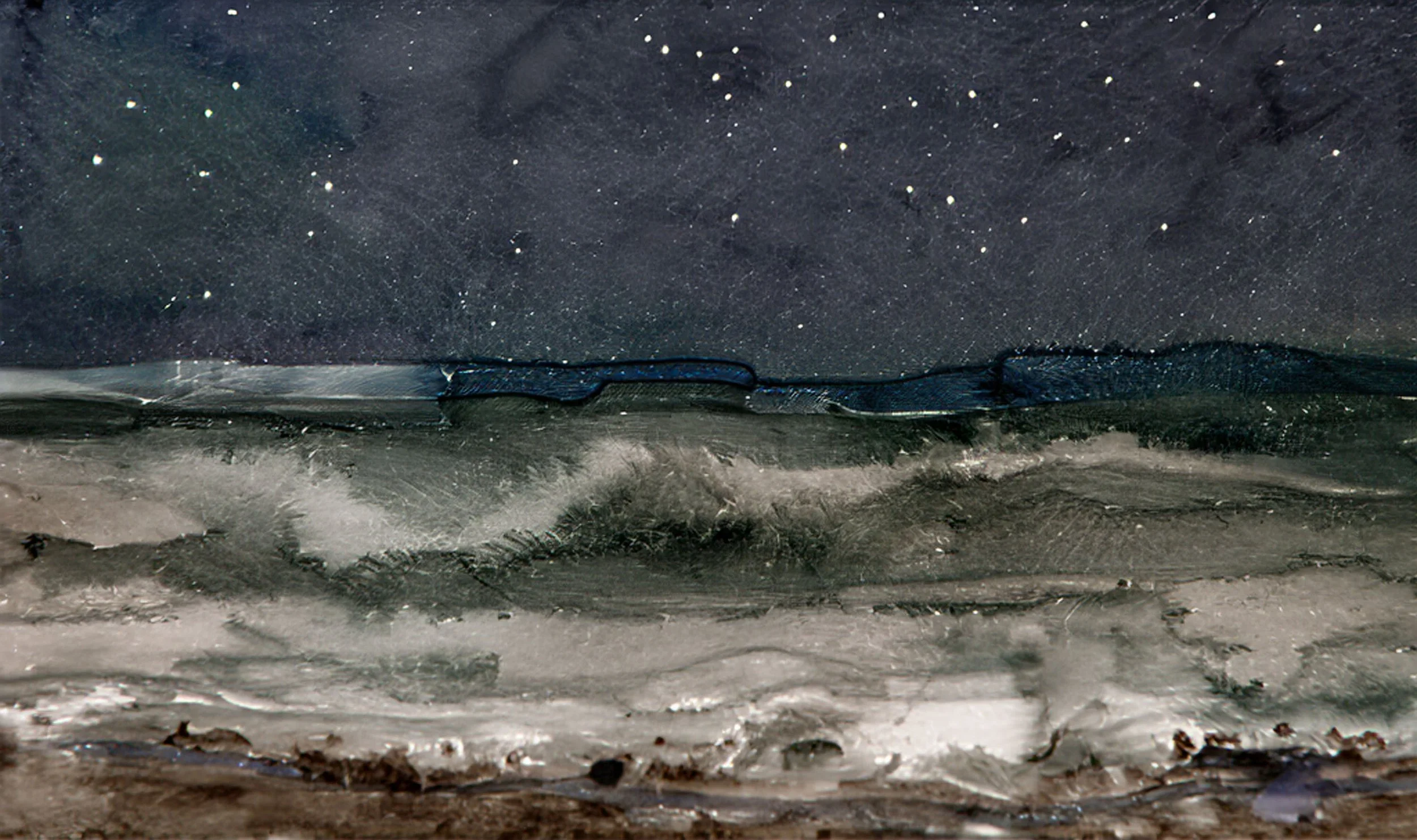10 Questions with Ran Fuchs
Ran Fuchs, an Australian artist and global nomad, is driven by two intertwined passions: an undying obsession for wildlife and nature and an exploration of the fine line separating reality from consciousness.
Ran's fascination with the natural world converges beautifully with his enduring interest in traditional Japanese arts, specifically kachoga and sumi-e (ink painting). This blend of interests has culminated in Ran's unique style of transforming his wildlife and bird photography into digital sumi-e. His work has been on the walls of art galleries across the globe, with four solo exhibitions in Sydney, Munich, and Rauma (Finland) during the years 2022-2023.
In parallel, Ran's quest to understand the boundary between reality and consciousness has kindled his creation of surreal, fantasy-themed digital art. It has also amplified his search for patterns in the world around him. This perception manifests in his work on geometrical photography, a project currently in the pipeline for his forthcoming Urban Geometry exhibition.
Ran Fuchs - Portrait
ARTIST STATEMENT
“If people could see nature through my eyes, they would love it and want to protect it, just like I do.
It is the nature near them they can learn to see first, and this is what my art shows them. I go to places anyone can visit, the backyard, the neighborhood park, the tree on the roadside, or the wasteland near a construction site.
I immerse myself in the environment and look for movement. Any movement will do a flying bird, a jumping insect, or a lizard. I learn their pattern until I can anticipate their next move.
Each movement is fleeting and faster than the eye can see, making every photo a new surprise.
After I capture a photo, I decide what it wants to become. Sometimes it wants to stay as is, but other times it needs total transformation, so I change it using mixed media. I am not concerned with tools or technics. For me, images are about creating a viewing port to the beauty of nature as I feel it.” — Ran Fuchs
INTERVIEW
First of all, introduce yourself to our readers. Why are you an artist, and how did you become one?
Ever since my childhood, I have been enchanted by the beauty of wildlife and, shortly thereafter, intrigued by the elusive enigma of consciousness and its interplay with the reality that surrounds us. After years of immersing myself in nature's wonders and Eastern philosophies, diving into scientific studies and the intricacies of mathematics, I felt an overwhelming urge to share my experiences with others. Thus, I picked up a camera.
In the beginning, it was a mere tool to document what my eyes saw. But a fortuitous incident made me realize that my photography was not just capturing scenes; it was sparking inspiration. It was inspiring people to become involved, to show concern, and most importantly, to take action to safeguard the environment. This revelation marked a pivotal moment in my artistic journey. I began to grasp that the role of my photography should extend beyond mere dissemination of information; it needed it to become a pathway for emotion, a driving force for transformation. This epiphany marked my evolution towards the realm of art, in which I strive to ensure my images were more than just photographs but rather catalysts to inspire a love for nature.
This is my journey, and it continues.
What is your personal aim as an artist?
My prime aim as an artist is to inspire people to observe and explore the world around them, not as they wish it to be, but as it truly is. I believe that this perspective can provoke a deeper understanding and genuine concern for our world.
Urban Geometry 4, 2019 © Ran Fuchs
How would you define yourself as an artist nowadays? And how has this definition changed over the years?
I do not like definitions, as my life and my art have different facets, often contradicting each other. While nature and wildlife are still my focus, I also love to explore the nature of reality and our perception. This is a big change for me, as originally I thought of my work as wildlife and bird photography.
Nature seems to be a huge source of inspiration for you and your work. However, as you mention in your statement, you are inspired by the most accessible forms of nature, like plants and animals one can find in their backyard or local park. How did you come up with this idea? And what do you want to communicate?
It is easy to be impressed by nature. Lions, elephants, whales, huge trees, and deep canyons are all things we often see only on screens and in photos. In real life, however, most of us will only encounter them in zoos or on short holidays, which we consider outside our 'normal' life.
These experiences are often too exotic and distant for us to fully see and feel they are connected to our lives. But nature is all around us. It is the bee on the flower, the sparrow on the pavement, and the rabbit in the nearby field. We can witness them every day, everywhere. We can get to know them, fall in love with them, and bring our family and friends to see them. And we can take action to protect them.
In my work, I want to emphasize that nature is all around us. It exists in our immediate surroundings and requires protection everywhere. But first, we must learn to see it. And this is my mission.
A step too far, 2021 © Ran Fuchs
Fantasy Not Just A Perfect Night, 2021 © Ran Fuchs
Another great source of inspiration for your work is traditional Japanese art. How did you get interested in kachoga and Sumi-e?
Since my early childhood, I have been fascinated by Japanese traditional culture. I went to live in Japan for a few years to get more exposure. I particularly liked the simplicity of sumi-e (ink painting), which for me is a type of conceptual art. That is, in a few simple lines, you create a complete word. While I am not limiting my photography to sumi-e, it is a great source of inspiration for me.
What is your creative process like? And what aspects of your work do you pay particular attention to?
For my 'real-world images,' I often get familiar with the area and the animals in it. I read about the location and explored it to get a feeling of what I could expect to find and what environment, light, and weather conditions would support my photos. Once I look at my photos, I try to feel what they want to become. Some photos are happy to stay as they are. Some require me to change them, manipulate them, or turn them into a drawing. I do not have any preconceptions; I just listen to the photo and help it reach what it wants to be.
Nature Common Blue, 2022 © Ran Fuchs
Nature Ikebana Bee, 2022 © Ran Fuchs
Is there anything else you would like to experiment with? Any medium or technique you would like to incorporate in your work?
I have been experimenting with combining physical brush strokes into my photography. I find that with all the sophistication of digital technology, it can still not create the feeling of a true brush-stroke.
What do you think about the art community and market?
I go and watch exhibitions, but I am really not involved much with the art community and know very little about it. The same is true for the market. I do what I enjoy doing and am happy to display it and exhibit it (mostly to nonartists), but I really do not know much about the market. I am simply happy when I find those who like my work.
Nature SumieBirds, 2018 © Ran Fuchs
What are you working on now, and what are your plans for the future? Anything exciting you can tell us about?
I am working more and more on semi-abstract, semi-surrealist images, focusing more on the perception of reality rather than the physical reality itself. I am hoping to evolve more in this direction
And lastly, what is one piece of advice you would give to an emerging artist?
Very few artists make a good living from their art alone. This has been true throughout most of history, and it is definitely true today. But creating art can enrich and fulfill us in ways far beyond the income, in a way very few other things can even get close to. So my advice is not to sacrifice your art to become popular or to satisfy others. If you do, it will become a work and a job, and you lose the true value you can get from it. So just make sure you do it for the love of it and not for any other reason. Because the day you view it as work, you have lost the real benefit it can give you.
Artist’s Talk
Al-Tiba9 Interviews is a promotional platform for artists to articulate their vision and engage them with our diverse readership through a published art dialogue. The artists are interviewed by Mohamed Benhadj, the founder & curator of Al-Tiba9, to highlight their artistic careers and introduce them to the international contemporary art scene across our vast network of museums, galleries, art professionals, art dealers, collectors, and art lovers across the globe.

